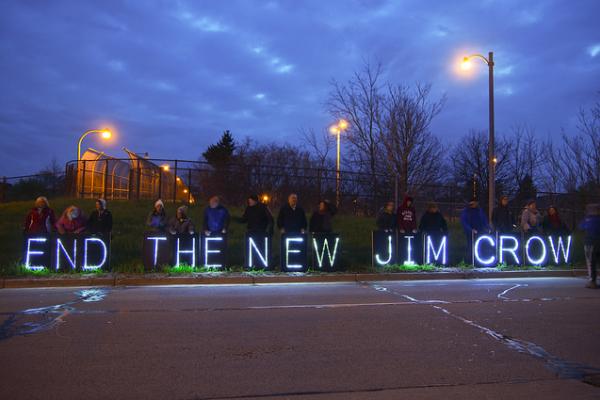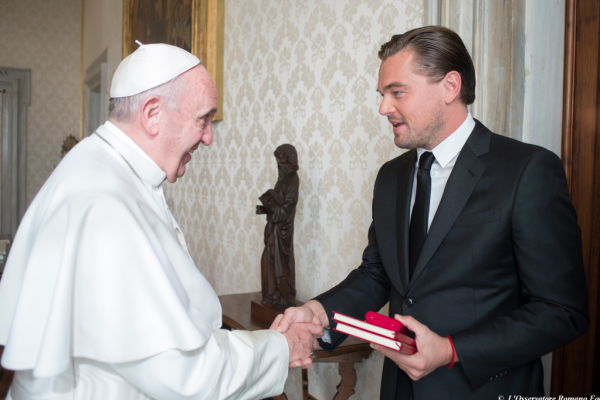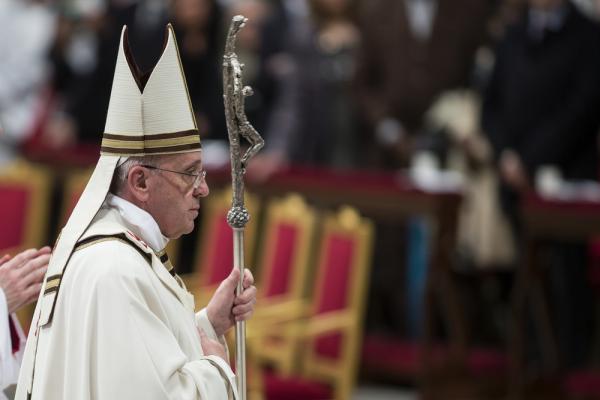Donald Trump, who loves to call others “losers,” is a big one himself in a new survey of U.S. Protestant pastors.
When LifeWay Research, an evangelical polling group, asked Republican pastors in mid-January who their pick would be if they were voting that very day, Trump was named by only 5 percent.
“Undecided” was the big winner with more than a third of GOP pastors (39 percent) in the survey. Indeed, 48 percent overall said they had no top choice in this “bizarre election season,” said LifeWay Research executive director Ed Stetzer.
Our lawyers have made a strong case this week that the voter ID component of this legislation places an unnecessary and undue burden on voters — especially poor and African-American voters. We will ultimately win this fight in the courts. But this case is about much more than defeating voter ID laws. It is about a central question of 21st-century American politics: is a multiethnic democracy possible?
Possibly hoping for divine intervention ahead of next month’s Academy Awards, Hollywood star Leonardo DiCaprio met with fellow environmentalist Pope Francis. Speaking Italian, DiCaprio kissed the pontiff’s hand on Jan. 28 and offered a “grazie” [thank you] “for granting me this private audience with you.” Then, switching to English, he gave the pontiff a book of paintings by Early Netherlandish painter Hieronymus Bosch, whose works meld fantastic imagery with reality.
The run-up to the Feb. 1 Iowa caucus has shifted from who is toughest on ISIS or immigration or Obamacare to an all-out scramble to court evangelicals — an estimated 60 percent of Republican caucus likely voters. However, a new report from the Public Religion Research Institute shows that evangelicals may be sharing their November election clout with a different voting bloc. PRRI found about one in four Iowans identify as evangelical but a similar percentage say they have no religious identity, the nones.
President Obama warned of growing anti-Semitism in the United States and the world as he honored two Americans and two Poles who helped save Jewish lives during World War II.
“Here, tonight, we must confront the reality that around the world, anti-Semitism is on the rise. We cannot deny it,” Obama said at a Holocaust remembrance ceremony at the Israeli embassy Jan. 27. He cited Jews fleeing European cities; attacks on Jewish centers in Mumbai, India and Overland Park, Kan.; and swastikas on college campuses.
Pope Francis is taking direct aim at the wealthy and powerful of the world, saying in his message for Lent that they are often “slaves to sin” who, if they ignore the poor, “will end up condemning themselves and plunging into the eternal abyss of solitude which is hell.”
“The greater their power and wealth, the more this blindness and deception can grow,” the pontiff wrote in his annual Lenten exhortation, which was released on Jan. 26.
For all the headlines about football violence, concussions, and player injuries, watching football is not a “guilty pleasure” for many Americans. It’s just a pleasure, a new survey finds. The Public Religion Research Institute/Religion News Service survey, released Jan. 28, also found overwhelming support for “allowing football coaches at public high schools to lead their players in specifically Christian prayer during games.”
Of course good art is in the eye of the beholder, but I define good art to be creations of paint, music, or stories that speak profoundly to the human condition and break open our imagination beyond what already is. Much of what is qualified as “Christian” art or music has instead done the opposite. It shuts down possibilities by offering a script to be consumed. Instead of creating space for genuine exploration of questions about God — who God is, what God does, where God can be found, etc. — Christian art supplies manufactured answers in a new marketing package. We have struggled to rise up into a prophetic imagination to speak against the dominant consumer culture. If anything, the subculture has been subsumed by consumerism.
The culture wars have always been with us. Conservatives start them. And liberals win them. So argues Stephen Prothero in his new book Why Liberals Win the Culture Wars (Even When They Lose Elections).
Prothero recently spoke with Sojourners about this argument, its impact on liberal activism, and how we can better wage the culture wars. This interview has been edited for length and clarity.
Reserve the hashtag #Oscarssoblack for next year’s awards. That’s because if viewer response is any indication, “The Birth of a Nation,” an independent biopic about a black slave, preacher, and rebel-leader, seems destined for Academy Award nominations in 2017.








